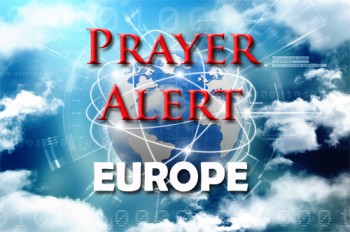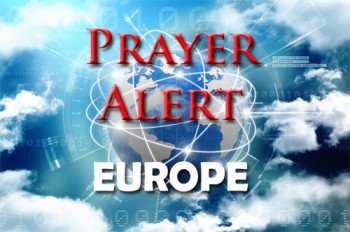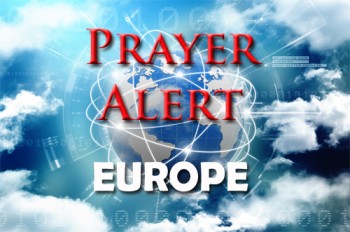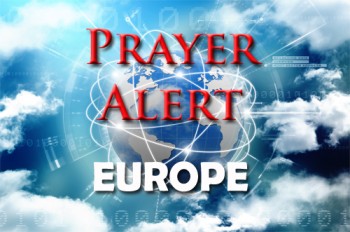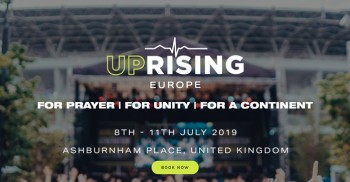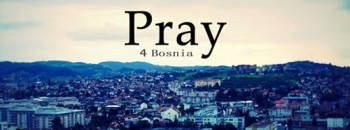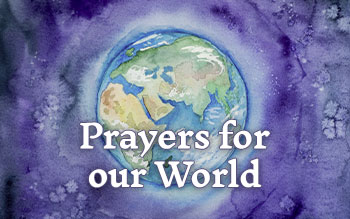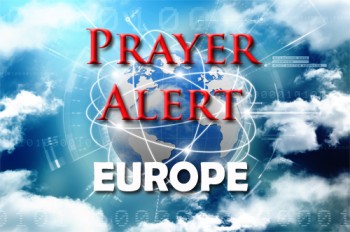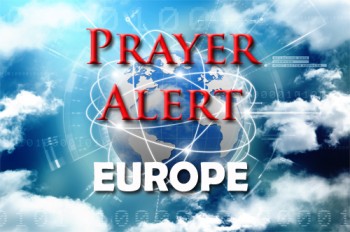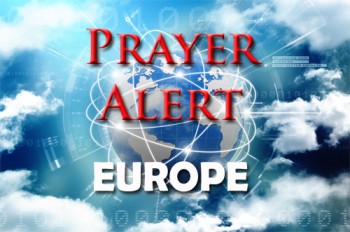Displaying items by tag: Europe
Russian journalist falsely accused
Moscow police had detained Ivan Golunov, an anti-corruption journalist, for alleged drug offences. However, they had to drop charges against him after his arrest caused displays of support from other Russian journalists and cultural figures, 25,000 people expressing their disgust on Facebook, and a threatened protest march. Police involved in the case were removed from duty pending investigations, and President Vladimir Putin will be asked to dismiss more senior personnel. The Kremlin admitted that ‘mistakes had possibly been made’. Forensic tests did not detect Ivan’s fingerprints on the drugs purportedly seized from his home, neither was there any trace of drugs in his urine or on his fingers. Photographs supposedly showing a drug lab at his flat were later deleted after a policeman admitted they were taken at a different location and bore no relation to the journalist. Human rights groups said police in Russia often plant drugs on suspects.
Albania: president cancels elections
Protesters were met with tear gas and flares on the streets of Tirana, after Albania’s president Ilir Meta cancelled the 30 June elections. He cited political tensions in the country, stating that circumstances do not provide the necessary conditions for true, democratic, representative and all-inclusive elections. The opposing centre-right Democratic Party, led by Lulzim Basha, have held weeks of protests aimed at forcing the prime minister to stand down. They accuse him of links to organised crime and vote-rigging. The United States and the EU are urging protesters to disavow violence and take part in dialogue with government representatives to resolve the political crisis. The EU has criticised some violent tactics used by protesters. Smoke bombs and firecrackers outside parliament were met with tear gas. Mr Basha has urged continuing protests until Mr Rama steps down.
Germany: Two prayer requests
With the tremendous growth in what is now medically possible, organ donation raises many questions from a Christian-ethical point of view. Our society urgently needs to ask God for guidance and leadership in these increasingly far-reaching questions of life and death. The German parliament will discuss and vote on organ donation proposals in the autumn without a party whip. We have been asked to pray for a God inspired and guided debate on how parliament should proceed with the organ donation question. Secondly, Germany has about twenty large and influential criminal family clans, with their fingers in many pies, creating complex lawless challenges across the nation.
Ukraine: New President’s Brussels trip
Ukraine has deep-seated corruption, economic challenges, and conflict with Russia-backed militants in Donetsk and Luhansk resulting in 13,000 deaths since 2014 when Russia seized control of Ukraine's Crimean Peninsula. Ukraine’s new president, Volodymyr Zelenskiy is a popular comedian with no political experience. He has called on the EU to step up sanctions against Russia ‘to get peace back in Ukraine’. Zelenskiy said that under his leadership Ukraine will continue to pursue EU integration, calling it ‘an assurance of the independence of the Ukrainian state, the welfare of the Ukrainian people, and the accelerated economic and technological growth.’ As the ‘Bible Belt’ of the former Soviet world, Ukraine’s Church has a history of persecution. Freedom of religion is improving, but is not yet protected in both law and practice. Leadership training and direction are greatly needed among Christians. May followers of Jesus arise as messengers of His hope for the future. See
United Prayer Rising Europe – 8-11th July 2019
51 Nations gathering – For Prayer, For Unity, For a Continent.
United Prayer Rising - Europe is a prayer and worship gathering happening this summer at Ashburnham Place in Sussex, UK bringing together people from all over Europe to contend for an awakening amongst the next generation. We believe God is raising up an army of passionate worshippers who will pray together to see their continent saved. This is God’s time for Europe!
UPRising Europe is part of the global UPRising movement birthed out of the World Prayer Assembly in 2012 in Indonesia. The first UPRising event was held in Seoul, South Korea in July 2016. Since then, there have been UPRising events in the Philippines, South Africa, Mongolia, Bolivia, Malaysia, Canada, Chile and Jakarta, Indonesia.
We are excited to now host an Uprising event for the continent of Europe. This is such a critical time for the continent – much is being shaken whilst God is stirring the hearts of young people for radical prayer and mission.
The backbone of UPRising Europe will be 72 hours of non-stop worship and prayer led by worship teams from all over Europe. These are the grassroots, passionate worship and prayer leaders who are faithful to where God has placed them and willing to contend for Europe.
Out of this will flow prayer and intercession for Europe, with inspiration from speakers in our main sessions. We will be hosting practical seminars equipping young people in a lifestyle of prayer, fasting and evangelism. Finally we will be commissioning people to take this fire back to their nations.
Uprising Europe will be from the 8th to 11th July 2019 at Ashburnham Place, Battle, East Sussex. We want to invite anyone with a heart for Europe and the next generation to come and join us. Ashburnham Place, a retreat and conference centre, is set in beautiful grounds with lakes and woodlands. You can come and camp, or stay in the main house.
JJ Waters, Director of UPRising Europe said, “Following God’s lead, we are incredibly excited to gather together people from every nation in Europe to contend for an awakening amongst the next generation. This is such a critical time for Europe – God is moving powerfully but we know there is so much more to come. He is stirring the hearts of young people for radical prayer and missions, in what is now one of the most unreached continents on earth. Now is the time to come together from different nations, across denominations, honouring fathers and mothers, and to worship and pray for a mighty move of God in Europe.”
The ticket price for this event is generously subsided to make it affordable for delegates from across the continent. The UPRising Europe team would welcome offers of sponsorship from Churches, organisations and individuals who would like to sow into this event, for Europe.
Further details about the event, tickets, pricing or sponsorship can be found on our website https://www.uprisingeurope.org/ or please email us at This email address is being protected from spambots. You need JavaScript enabled to view it..
Uprising Europe is working with partners including YWAM, Burn 24-7, the World Prayer Centre, Ashburnham Place, Elim Prayer, Maranatha, Crosswinds Prayer Trust and Interprayer UK. Overseeing, supporting and endorsing the United Prayer Rising Europe event are Ian Cole of the World Prayer Centre, Birmingham, UK and Brian Mills of Interprayer, UK. They are both respected elders of the movement for prayer in the UK and worldwide.
Bosnia: Prayer for the Church
Churches Led by the Holy Spirit - Before Jesus went up to heaven, he told his disciples to wait in Jerusalem for the promise of the Father - the Holy Spirit. They did, and it was by the power of the Spirit that the very first movement to Christ began. 3,000 were baptized in one day, with believers added daily.
Again and again throughout the book of Acts we see the Holy Spirit initiating, empowering, and leading the early church. By the Holy Spirit, the disciples proclaimed the gospel fearlessly. They were empowered by the Spirit to speak boldly in the face of imprisonment, courts, opposition, and even death. Yes, and it was through the leading of the Holy Spirit that the church sent out the first people to take the gospel where it was not known.
Likewise, as we pray for a movement in Bosnia of disciples making disciples, we long to see churches following that very first model of being led by the Holy Spirit.
But you will receive power when the Holy Spirit has come upon you, and you will be my witnesses in Jerusalem and in all Judea and Samaria, and to the end of the earth. Acts 1:8
Going Before the Father:
- Pray for the Holy Spirit to stir and convict souls in this nation— and that the result would be commitment to Christ.
- Pray for those who know Christ and those who will soon come to him, that they will live empowered and emboldened by the Spirit in their daily lives.
- Pray that obedience to the Holy Spirit would be central to new churches as they form.
EU Warns Romania Of Legal Steps Over Moves To Weaken Rule Of Law
The European Commission has threatened it will take legal action against Romania unless it reverses moves to cripple the independence of its courts and hinder the fight against corruption.
The commission, which is the European Union's executive body, has repeatedly warned that measures adopted by the ruling Social Democrats -- including moves to reduce statutes of limitation that would close some ongoing corruption trials -- are reversing years of anticorruption reforms and weakening the rule of law.
Spokesman Margaritis Schinas told a news briefing in Brussels on May 13 that Commission First Vice President Frans Timmermans had sent a warning letter to Romania's government on May 10.
"The main concerns relate to developments interfering with judicial independence and the effective fight against corruption, including the protection of financial interests of the EU and particularly to the recently adopted amendments to the Criminal Code that create a de facto impunity for crimes," Schinas said.
"Possible legislation to allow extraordinary appeals would further aggravate the rule-of-law situation," he added.
The commission has already put Hungary and Poland under a special "rule of law" framework over steps to tighten state control over the courts, media, academic institutions, and advocacy groups. This could theoretically lead to the eventual activation of the EU's Article 7 -- the so-called "nuclear option" -- resulting in a suspension of their voting rights in the EU.
Schinas said similar action would be taken against Romania unless it addressed the EU's concerns.
Schinas also signaled that Romania's becoming a member of the EU's passport-free Schengen travel area -- for which Bucharest has been pushing for years -- might not happen if the government ignored the rule-of-law concerns.
A senior EU diplomat, speaking to Reuters on condition of anonymity, said penalties could include loss of EU funds.
"The Romanian coalition government is systematically undermining the rule of law for the sole purpose of saving corrupt political leaders from prison," the diplomat said.
"If Bucharest continues on this dangerous path, taking part in the Schengen travel-free area will remain a pipe dream.
"Infringement of the rule of law will endanger the distribution of more than 30 billion euros [$33.7 billion] in cohesion funds earmarked for Romania in the draft EU budget for the years following 2021," the diplomat told Reuters.
Pray: That the integrity of the Romanian judicial system will be maintained.
Pray: That proposed legislation that undermines the rule of law will be overturned.
With reporting by Reuters, AFP, and RFE/RL's Romanian Service
Italy: Migrants refused entry
Italy intends to close all ports to NGO ships rescuing migrants crossing from Africa to Europe. The UN said that the decree intensifies the hostile climate and xenophobia against migrants. Meanwhile over 40 migrants from the German aid group Sea-Watch remained off the island of Lampedusa waiting to disembark its passengers. There are thousands looking for a new start after difficult journeys. In the middle of his nursing training, Hassan was drafted for five years of Eritrean military service, so, with his twin brother walked 550 miles overland to Khartoum, lived in a UN refugee camp for four months and hid in a truck caravan for 2,200 miles to Libya. Eight months of hard labour gave them enough for fake papers and a rubber dinghy holding 45 adults that crashed on a Sicilian beach. They managed to travel to Denmark, applied for refugee status and are hoping, eventually, to join friends in the UK. See https://prayercast.com/displaced-people-in-europe.html
Germany: Jews told not to wear skullcaps
A skullcap, sometimes called a kippah or yarmulke, is a cap worn by some male Jews under religious rules that say their heads should be covered. Commissioner Felix Klein, the German government's top official against anti-semitism, has warned Jewish people not to wear skullcaps in parts of the country because of a rise in anti-Semitic attacks. Mr Klein told the Funke newspaper group, ‘My opinion has unfortunately changed compared with what it used to be. I cannot recommend to Jews that they wear the skullcap at all times everywhere in Germany.’ According to statistics released earlier this month, anti-Semitic incidents were up by 19.6% to 1,799 in 2018, with 89.1% of them involving far-right perpetrators. Israeli President Reuven Rivlin said he was deeply shocked by Mr Klein's words. He added, ‘We will never submit, will never lower our gaze and will never react to anti-semitism with defeatism - and expect and demand our allies act in the same way.’
Poland: Just Don't Tell Anyone
A survey showed that Poland's pro-EU opposition has a ten-point lead over the ruling nationalists ahead of European Parliament elections - a sharp turnaround that some analysts linked to a film about sexual abuse scandals in the Catholic Church. The documentary Just Don't Tell Anyone, which shows victims of child abuse confronting priests who had sexually abused them, has shocked Poles. The powerful Catholic Church has close ties with the governing Law and Justice party (PiS). The documentary has been viewed more than 18 million times on YouTube since it was released on 11 May. PiS has responded to public outcry by announcing tougher penalties for child abuse, but it has also stressed that the instances of abuse by priests should not be used as a reason to attack the Catholic Church. PiS sees Catholicism as a key element of Poles' national identity. Some say that the church is too powerful.
